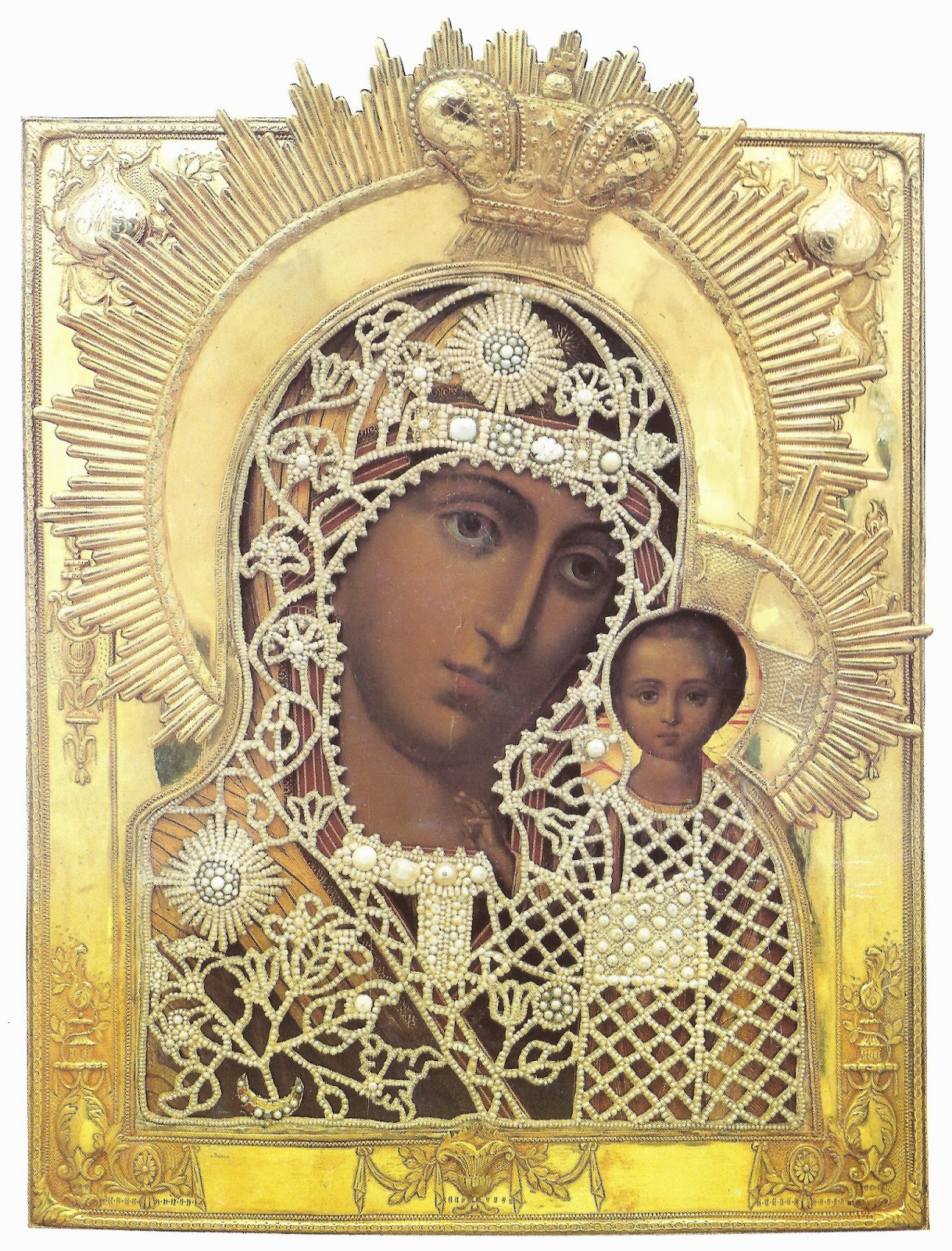Night Office Reading,
Saturday memorials of the Blessed Virgin Mary
Saturday memorials of the Blessed Virgin Mary
 |
| Virgin of Kazan Valamo monastery |
The memorial is a remembrance of the maternal example and discipleship of the Blessed Virgin Mary who, strengthened by faith and hope, on that great Saturday on which Our Lord lay in the tomb, was the only one of the disciples to hold vigil in expectation of the Lord’s resurrection; it is a prelude and introduction to the celebration of Sunday, the weekly memorial of the Resurrection of Christ; and it is a sign that the “Virgin Mary is continuously present and operative in the life of the Church”.On Saturdays in Ordinary Time when there is no obligatory memorial, an optional memorial of the Blessed Virgin Mary is allowed.
Alternative Sermon 20 (Breviary)
A reading from the sermons of St. Aelred of Rievaulx
Mary, our Mother
Let us come to his. bride, let us come to his - mother, let us come to the best of his handmaidens. All of these descriptions fit Blessed Mary.
But what are we to do for her.? What sort of gifts shall we offer her? O that we might at least repay to her the debt we owe her ! We owe her honour, we owe her devotion, we owe her love, we owe her praise. We owe her honour because she is the Mother of our Lord. He, who does not honour the mother, will without doubt dishonour the son. Besides, scripture says: 'Honour your- father and your mother.'
What then shall we say, brethren? Is she not our mother? Certainly, brethren, she is in truth our mother. Through her we are born, not to the world but to God.
We all, as you believe and know, were in death, in the infirmity of old age, in darkness, in misery. In death because we had lost the Lord; in the infirmity of old age, because we were in corruption; in darkness because we had lost the light of wisdom, and so we -had altogether perished.
But through Blessed Mary we all underwent a much better .birth than through Eve, inasmuch as Christ was born of Mary. Instead of the infirmity of age we have regained youth, instead of corruption incorruption, instead of darkness light.
She is our mother, mother of our life, of our incorruption, of our light. The Apostle says of our Lord, ‘Whom God made our wisdom, our righteousness, our sanctification and redemption.
She therefore who. -is the mother of Christ is the mother of our wisdom, mother of our righteousness, mother of our sanctification, mother of our redemption. Therefore she is more our mother than the mother of our flesh. Better therefore is our birth which we derive from Mary, for from her is our holiness, our wisdom; our righteousness, our sanctification, our redemption.
Scripture says, 'Praise the Lord in his saints'. If our Lord is to be praised in those saints through whom he performs mighty works and miracles, how much more should he be praised in her in whom he fashioned himself, he who is wonderful beyond all wonder.
RESPONSORY
R/ Blessed is the holy Virgin Mary, and most worthy of all praise; * through her has risen the Sun of, Justice, Christ our God, by whom we are saved and redeemed.
V/ Let us joyfully celebrate this feast of the Blessed Virgin Mary.* Through her has risen ...








name+from+Fr+M.jpg)
